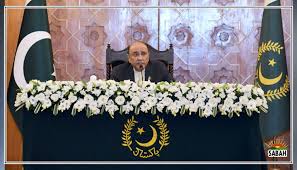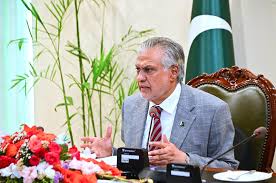Gaza ceasefire: What role could the EU play after the war?

Brussels: Fifteen months after a Hamas-led attack in southern Israel triggered the unprecedented Israeli bombardment and ground campaign that has laid waste to Gaza, a way out of the conflict may be in sight.
The human cost has been devastating: a Palestinian death toll close to 45,000, according to local authorities; more than 1,000 Israeli fatalities from the October 7, 2023, assault.
The EU watched from the sidelines as the US, Egypt and Qatar mediated a three-phase ceasefire deal between Israel and Hamas that could come into effect on Sunday, seeing 33 Israeli hostages in Gaza released in exchange for Palestinian prisoners held in Israel.
With the finalization of the accord being called into question by Israeli Prime Minister Benjamin Netanyahu at the last moment, the world held its breath.
The 27 countries of the EU, which has been beset by internal divisions and had limited diplomatic sway, may now have an important role to play.
In Brussels, the European Commission commended the mediator countries and welcomed the deal on Thursday.
“The EU is ready to support the implementation of the ceasefire,” EU foreign affairs spokesman Anouar El-Anouni told reporters at a briefing.
The EU executive branch announced that its 2025 humanitarian aid package for Gaza would be worth €120 million, covering food, water, shelter and health care. “We know that the situation there is catastrophic,” spokesperson Eva Hrncirova said.
Close to 90% of Gaza’s pre-war population of 2.3 million has been displaced amid continuous Israeli strikes, with many people forced to live in tents after their homes were reduced to rubble. Late last year, the UN said that more than 1.8 million people were in extreme hunger, citing estimates from the IPC global food security initiative.
Israel is still heavily restricting aid deliveries for now, though much more should be allowed through in the first stage of the ceasefire deal, which would also see the beginning of a withdrawal of Israeli troops.
On top of short-term humanitarian aid, the EU is also poised to help rebuild Gaza in the long term. Last April, the UN, EU and World Bank estimated that $18.5 billion of damage had been done to Gazan infrastructure in the first four months of the war alone.
On Thursday, the EU indicated it was on standby to work with international partners, particularly the Gulf states, when the time came. “Now we need to see what the future holds,” El-Anouni said.
The EU was already looking into reactivating its long-dormant monitoring mission at the currently closed Rafah crossing on the Egyptian-Gazan border, El-Anouni said. “This remains dependent on full consent from both sides, and on a decision from the EU member states,” he stressed.
But before any serious reconstruction can begin, a viable plan for Gaza’s political and security governance must be thrashed out, Hugh Lovatt of the European Council on Foreign Relations (ECFR) told DW on Thursday.
“By itself, the ceasefire agreement, although an important first step, is not enough, and it will easily collapse unless there is this broader political track to support it,” he stressed.
Israel’s stated goal in the war was to wipe out Hamas, which has controlled Gaza since 2007 when it won elections and ousted its political rival Fatah, the political party at the head of the then-governing Palestinian Authority (PA). The territory has been under Israeli blockade ever since. Israel also occupied Gaza from 1967 to 2005.
The Palestinian Authority, which exerts partial control over the West Bank, is Israel’s Western partners’ chosen Palestinian interlocutor, despite some recent concerns about its democratic credentials.
The success of any stabilization plan for Gaza, according to the ECFR, will depend on the return of a revitalized PA. According to Lovatt, the EU can use its leverage as a major financial backer of the authority to shape negotiations going forward.
Another crucial question is how much the EU will be able to influence developments after the ceasefire, if it holds, with Netanyahu beholden to far-right hardliners in his government and US President-elect Donald Trump about to return to the White House.
Trump is a close backer of Israel, and figures in his incoming administration have voiced support for the current Israeli government’s more extreme nationalist positions, for example in favor of more of the settlements deemed illegal by the EU and UN.
Whether the new president listens to these voices or not remains to be seen, and there is space for the EU to act, according to Lovatt.
“Trump is not a details kind of guy. I think it’s fair to say he wants to be able to say that he’s ended the war in Gaza.” But beyond that, his position on the future of Gaza is not yet clear.
“European governments working in partnership with Arab countries, especially Arab Gulf countries, should positively engage with the Trump administration,” Lovatt said. “The challenge for the EU is to translate its slogans into action.”





